Cultivating Success
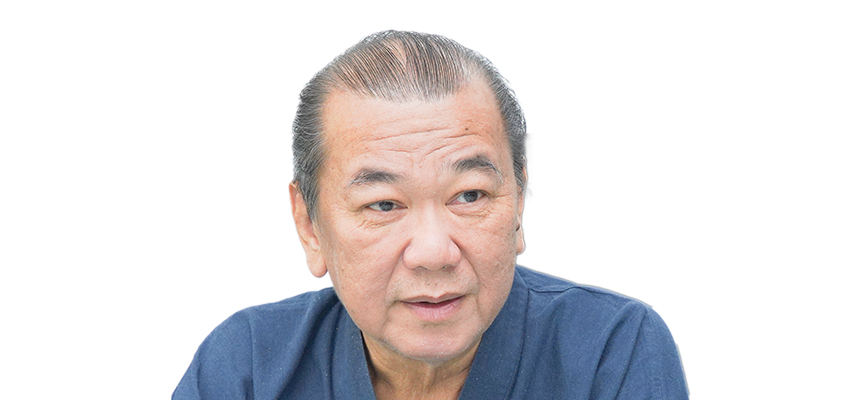
Deep interest in mushrooms and their relationship with human health, drove Datuk Lim Siow Jin, establish DXN company, to utilise the fullest potential of Ganoderma mushroom for human health and wealth. An entrepreneur to the core, he is the Executive Chairman, DXN Holdings, Malaysia.
A 1984 (batch) graduate from the famed Indian Institute of Technology (IIT)- Kharagpur, Datuk Lim Siow Jin, took a civil engineering job in Malaysia for few years after returning from India. Later he saw a potential opportunity to develop a business and that would help more people to get acquainted and utilise the benefits of Ganoderma mushroom, a miraculous herb. In 1993, Datuk Lim's dream came true when he established DXN in Kedah, Malaysia.
With worldwide operations, DXN today is well-known for its Ganoderma business and its activities include cultivation, manufacturing and marketing of the health food supplements. In its core business of direct selling, the rapid global expansion of DXN is recognised internationally. DXN has upheld its concept of 'One Dragon, One World One Market, and One Mind' and sailed through continuous growth over the years.
In an exclusive interview with Corporate Citizen, Datuk Lim Siow Jin, talks on his entrepreneurial journey, their contribution in the field of health and wellness, DXN concept and philosophy, their success in the direct selling industry and much more
Corporate Citizen: You are a graduate from IIT - Kharagpur. Tell us about your India expereince and career journey.
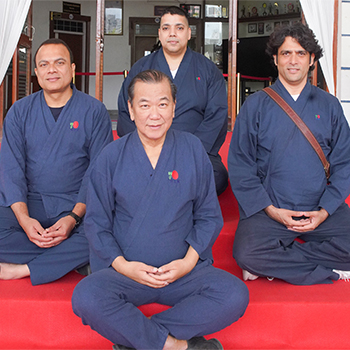
Datuk Lim Siow Jin: I was born in Malaysia and my primary and secondary schooling happened in Malaysia. Education in Malaysia is almost same as in India, and have schools with English as the primary medium of instruction.
I come from the northern part of Malaysia. My line of descent can be traced back to Chinese ancestry—my grandfather came from China. Malaysia’s population comprises of a lot of immigrants from China and also from India, who together make up around 30 per cent of the total population. My father was working as contractor for a construction company, which is why he sent me to India to study civil engineering at IITKharagpur, in the state of West Bengal.
I came to India at the age of 19 years (in the year 1984) and completed my graduation at the age of 24 years. For anyone between the age of 19–24 years, it is a prime time of your life, when your way of thinking is being mentally and emotionally developed. And, in my case that happened during my stay in India. It was the time when I got to socialise with the Indian people and their culture and I found that there are lot of things common between India and Malaysia. Not only culturally but even our food and lifestyle have so many similarities. So, when I came to India for the first time to study, I did not feel that I was in a foreign country and adapting to the culture here came very easy.
At IIT-Kharagpur, it was a great learning experience—it’s a premier Indian institute which exemplifies educational excellence. Even though I did civil engineering there, we had to do lot of interdisciplinary activities involving two or more different subjects or areas of knowledge. In the five years of our programme at IIT, the first three years were common for all disciplines—that kind of laid out a strong foundation for my future career and entrepreneurial journey, in founding DXN.
CC: After completing your IIT programme, did you work before getting on to the entrepreneurial bandwagon? When and how did you start your entrepreneurial venture?
After coming back to Malaysia, I worked for ten years as a civil engineer with Muda Agricultural Development Authority (MADA), wherein I specialised working on projects in irrigation, farm groups and bridges.
ACTION—STRATEGY—GOAL
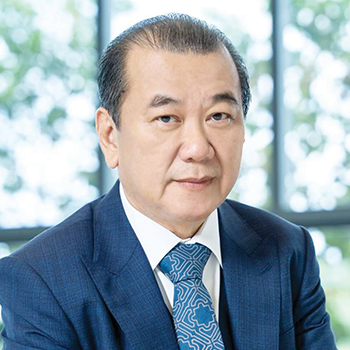
When you are in management, the normal practice is that you will set your goal, after that you will set your strategy, and then you will go for action. But, if you do not have enough money in your bank and enough resources, how can you set your goal? Setting the goal of becoming a millionaire is useless under such circumstances. Secondly, if your strategy does not work even after a lot of planning then you will keep on preparing a new strategy every time it does not work. After many attempts you fail and stop.
My advice is, you should do it reverse—you should take action first. When taking action, you will face problems. When you face problems, you set your strategy in real-time, which will make you more flexible to handle the problem. After that you know where you are going.
Many entrepreneurs have a goal, a vision and strategy, when they start their startup, and after that they get into action. My advice to you is be careful of this modus operandi. Normally it doesn’t work with many people. So, you must plan for the action first and do your duty.
If the market rejects your product, then you as a young entrepreneur should find a way out. Sell what the market wants and don't sell what you want to sell. Take action, do your duty, and don’t worry about the problem. Failure will not kill you—it will make you change the strategy. Be ready to face failures and objections. Failure is mother of success. Success is built on failure and not the other way around.
I started this business of DXN, in the year 1993. But before that I was working on the agro-irrigation projects and would visit rural areas in Malaysia. During these visits, while on my way back home, I would stopover at these snack stalls for a tea break. As I was a civil engineer, the villagers would often come to consult me and ask for my advice on various farming issues. So, during one of these stopovers, a villager brought me this Ganoderma mushroom, and asked me to identify its potential and benefits on human health. After doing some research, I came to know that this Ganoderma mushroom is very widely used by the villagers, for its medicinal values. What they do is they burn the mushroom, convert it into ash powder, mix this ash with honey, and use it to treat asthma, which is a chronic lung disease. They mix the same mushroom ash with coconut oil to treat skin diseases. I thought, if this Ganoderma mushroom ash after burning is so powerful, how potent and effective it will be in its raw form.
This is when my quest to find the benefits of mushroom on human health started. After years of careful research and scientific analysis, I discovered the specific benefits of Ganoderma (Lingzhi) and its corresponding effects on human health. Realising Ganoderma’s importance and health benefits, I began sharing the knowledge about this miraculous herb among my friends and colleagues who mirrored my passion for good health. I did not stop there, I felt that I should form a company to help more people to get acquainted and utilise the benefits of this miraculous herb. In 1993, my dream came true when I established DXN in Kedah, Malaysia.
CC: DXN's core business includes cultivation, manufacturing and marketing of the health food supplements and based in Malaysia its operations is now spread worldwide. How did you build and sustain a global network for DXN products?
Coming back to my IIT training in India, it is here we were trained to keep things simple. The multidisciplinary training programme taught us that we should find a way to coordinate and link everything together. So, when I started my business, I invented this concept of “One Dragon, One World One Market, One Mind” to help sell and publicise our business worldwide.
CC: Can you elaborate more on this concept of “One Dragon, One World One Market, One Mind”?
One Dragon (Eka Naga)— a dragon is long in length, and it rightly represents our entire long process of cultivation, processing and marketing, which is solely done by the company under strict quality control. In Malay language we use the word “Eka Naga”, a derivation from Sanskrit language, wherein Eka means one and Naga means snake (Dragon). It is surprising that the roots of some of the Malay words can be found in Sanskrit, such as Putra, Bhumi and many more.
One World One Market (Eka Bazaar)— in Malay Eka means one and Bazaar means market. We link all the market together and we consider it as one and do not differentiate the market. Each and every distributor enjoys worldwide bonus with single membership.
One Mind (Eka Mida)— which means we just focus on what we are doing. The company and the distributors single-mindedly concentrate on doing DXN business. So, 30 years ago we were Ganoderma company, today we are Ganoderma company and in future also we are going to remain as Ganoderma company. We are very focused in our minds.
"First and foremost, believe in yourself and your entrepreneurial goals. As an entrepreneur, stand firm and believe in what you want to do. To believe in yourself is the first step to achieve anything—stand firm and do not waver despite challenges"
CC: DXN core business is direct selling—why did you choose the direct selling business model for selling your product, in a non-retail setting, controlling the whole cycle from manufacturing to the final sale?
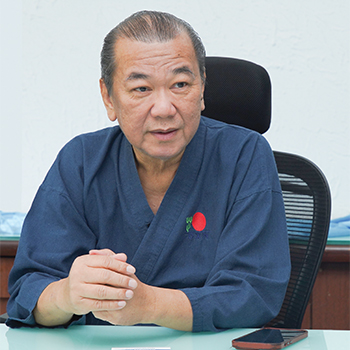
Direct selling is people-to-people business model or you can say it is B2C business. The advantage of dealing directly with the customers is that we can have direct communicationwith them. If I sell my products through health stores, I normally do not directly communicate with customers. Because Ganoderma is a special product, you cannot sell it through stores and supermarkets—people won’t buy it because product information cannot be accurately relayed to them. So, we need to explain it to them and direct selling or people-to-people selling is much better way of selling. This multi-level marketing (MLM) strategy is a better way for an organic growth.
There are two ways to expand your business — one way is that you establish your branches across the globe in the other countries and from there you expand your business. Herein you expand by physical expansion, you have people-to-people expansion, which is an organic expansion by talking to people directly. And, this is much more effective, as we do not depend on shops.
Now, we are also familiar with e-commerce for online selling, but we still follow the concept of direct selling. The biggest advantage of direct selling, which I call shop-less selling, is that we can expand our business in five to ten countries at the same time. Today we are in more than 100 countries across the world, including India.
We are in India for last 24 years. DXN has almost become an Indian company, because ninety per cent of my Person-in-Charge (PIC) are from India—I source them from India. The CEO of DXN Holdings, Prajith Pavithran, is a US citizen of Indian origin.
CC: The DXN philosophy is “Low Price, High Quality, Low Profile, High Income”. How do you maintain that philosophy?
Maintaining it is very simple, because DXN is a manufacturer—around 90 per cent of our products are self-produced. Direct selling is just our marketing arm. So, many people don’t see DXN as Manufacturing Operations Management (MOM) company—we are also manufacturers. When we came to India, we setup a factory here. We are very different from other MOM companies that are trading companies, who buy and sell. At DXN we do not buy and sell, we produce and sell. We have setup a huge production facility in India. Today in India we are self-sustained—we do not bring anything from outside of India. Today we export from India and India has become a production hub for DXN.
Our philosophy - to provide low price and high quality products, to keep a low profile while generating high income, is ideal for direct selling. This system is equitably accessible to anyone from any background. Our free enterprise system enables anyone to enjoy personal achievements that lead to greater financial independence. More importantly, numerous people have testified to the benefits of our products when they gained better health through consumption of our products. Our philosophy is the foundation on which our success in the direct selling industry is built.
CC: Do you see India’s entrepreneurship emerging as a driving force for fueling innovation, job creation, and economic growth?
India is a huge country and here you don't have to worry about workforce (human resources). If I want to setup a factory here, I don’t have to worry about getting the right people for doing the job. For example, recently we setup a factory in Siddipet, in Telangana state, in India and wanted to produce mushroom—I had no problem in getting people who knew mushroom and Spirulina.
For anyone who wants to start a startup business in India, you are in a very advantageous position—you can get human resources very easily. Supportively, India’s education network is so huge and excellent—they are producing bright and talented people for any sector you want.
"The biggest advantage of direct selling, which I call shopless selling, is that we can expand our business in five to ten countries at the same time. Today we are in more than 100 countries across the world, including India"
CC: Today Ayurveda is not just limited to India; it has expanded globally. Do you see it as a game changer of holistic care to solve today's health issues?
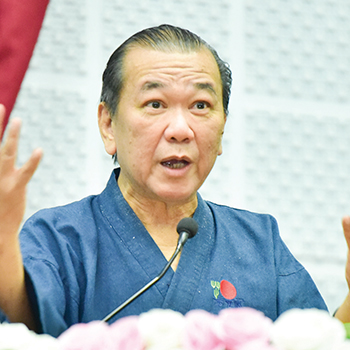
The Tathagat Research Foundation, have recognised Ganoderma as part of Ayurveda and have conferred the Tathagat International Excellence Award 2012, during their 6th International Conference on Ayurved and Complementary Systems of Medicine, for my outstanding contribution in the field of health and wellness. We are using GMP (good manufacturing practice) factory to produce these ayurvedic products—DXN produces lot of ayurvedic products and we have lot of ayurvedic doctors working with us. We also connect with farmers to collect herbs from them.
CC: DXN network is spread across the world. How big is the contribution of India in terms of sales?
India’s contribution is around 10 per cent of our global sales. The biggest revenue comes from Latin America. But, Latin American market is monolithic, as the culture and language is somewhat same, which becomes easy for us to promote our products.
CC: It's over three decades since you started DXN in 1993. What are your future plans for DXN, with reference to e-commerce?
As far as e-commerce is concerned, today we cannot limit ourselves to direct selling. We believe that if you cannot beat them, join them. We have become part of e-commerce and online selling now. There is no difference between sales through direct selling and online selling, as many of our orders are also coming from online sales. Online selling is a system, which can be used for MOM, retailing and other things. Both direct and online selling are two ways of selling and we use it jointly.
"For anyone who wants to start a startup business in India, you are in a very advantageous position—you can get human resources very easily. Supportively, India’s education network is so huge and excellent— they are producing bright and talented people for any sector you want"
CC: Does DXN encourage farmers to form societies to work on cooperative business model?

At DXN we don’t use cooperative business model. The farmers we source our raw material from, become our suppliers. We also use contract farming model, wherein the farmers are required to plant our crop on their land, and harvest and deliver back to us.
CC: You came to India in the year 1984, to study at IIT-Kharagpur. What is your observation of India’s development and economic growth in the last 30 years?
The transformation of India is beyond imagination. For example, when I first came to Calcutta in the year 1984, my experience of passing through the emigration clearing was very time consuming and cumbersome. Today, emigration clearance process is very fast due to technology. There is a big reform in framework and leveraging technology has made the emigration clearance process more transparent and faster.
During my student time in India, to buy a scooter, one had to wait for so many years. Today you can buy any vehicle, complete the procedure and get the delivery on the same day. I find that the Indian cities have become much cleaner and orderly. It is clearly indicative that the Indian economy has become robust. The Indian education system is one of the oldest education systems and today it has become more accessible, adaptable and practical.
CC: What is your advice to new entrepreneurs who are getting on to the entrepreneurship bandwagon?
First and foremost, believe in yourself and your entrepreneurial goals. As an entrepreneur, stand firm and believe in what you want to do. I started DXN as a very small firm, in a small village, in the northern part of Malaysia. That was the time when we decided to adopt direct selling model for our business, and nobody believed in us. It started as a cottage industry and we believed in what we wanted to do and today DXN is a worldwide network group. To believe in yourself is the first step to achieve anything—stand firm and do not waver despite challenges.
CC: How do you maintain work-life balance in your busy corporate life?
I divide my time into three parts— one part I give to my family, one part to the work I do and one part for social work. You cannot tie-up yourself totally with the work you do for living and for earning money. So, we at DXN also involve ourselves with some social work. For example, we donate Spirulina for malnutrition programmes worldwide. For myself, I practice meditation, and it helps me to balance my mind, body and soul. The mind and body cannot be separated, if you balance your mind only then you can balance your body.